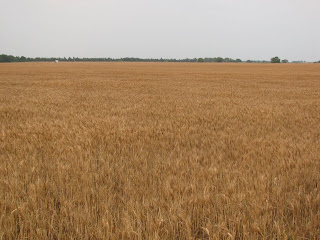"I am sending you out like sheep among wolves."Matthew 10:16
Wolves...fierce
predators that hunt in packs, devouring their prey, they are the villains in
children's stories and the stuff of nightmares.
When we had sheep on our farm, wolves were not a threat to them but their cousin the coyote was. Like wolves, coyotes are predators. While often choosing to hunt solo, they will take on the pack mentality of wolves to attack larger prey. Sheep, especially small lambs are an easy target for them. Once a coyote gets a taste of lamb the only way to keep them away is to shoot them.
Wolves are much larger and more fierce than their cousin the coyote. They hunt in large packs and are capable of taking down very large prey. They can take out not only a small lamb put potentially devastate an entire flock. Sheep are defenseless against them.
When Jesus sent the disciples out as "sheep among wolves" there is an obvious note of danger there. He is telling them that what they will face will in no way be safe and in fact will be quite dangerous. Like predators, those that Jesus was sending them to had the ability to devour and destroy. He was not painting a pretty picture for them.
Many today within the Christian faith paint a picture of the Christian life as "blessed". The idea is that those who believe in Jesus Christ as their Savior will have a trouble free and safe life. The truth is that Jesus painted a much different picture. The message that he gave to the twelve disciples was also intended for us. The first part of this message is that we are sent, we are to go, but the part of the message that is overlooked and even ignored is that there is nothing safe about being a Christian. If we do what he is asking it will be dangerous. We are defenseless creatures, totally reliant on our "shepherd" to protect us.





















